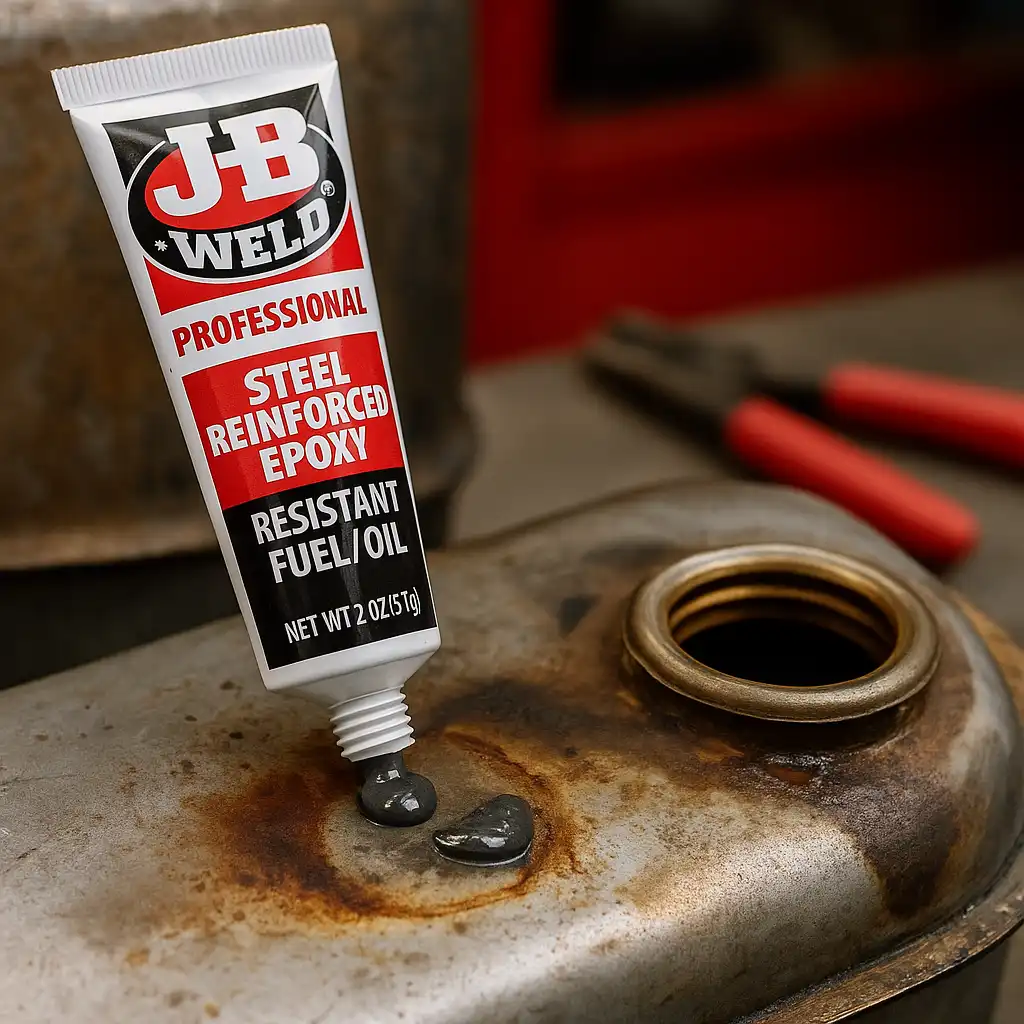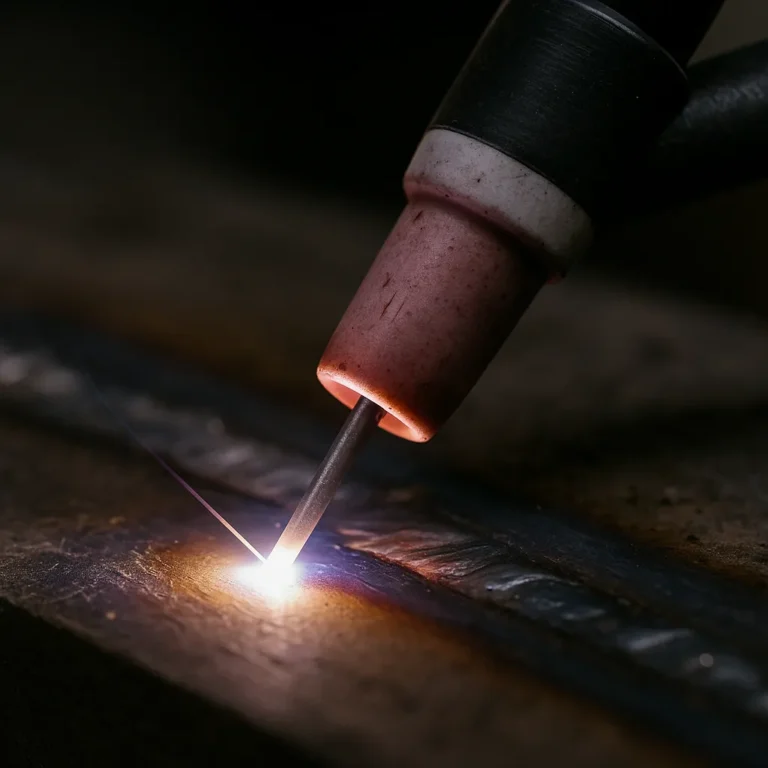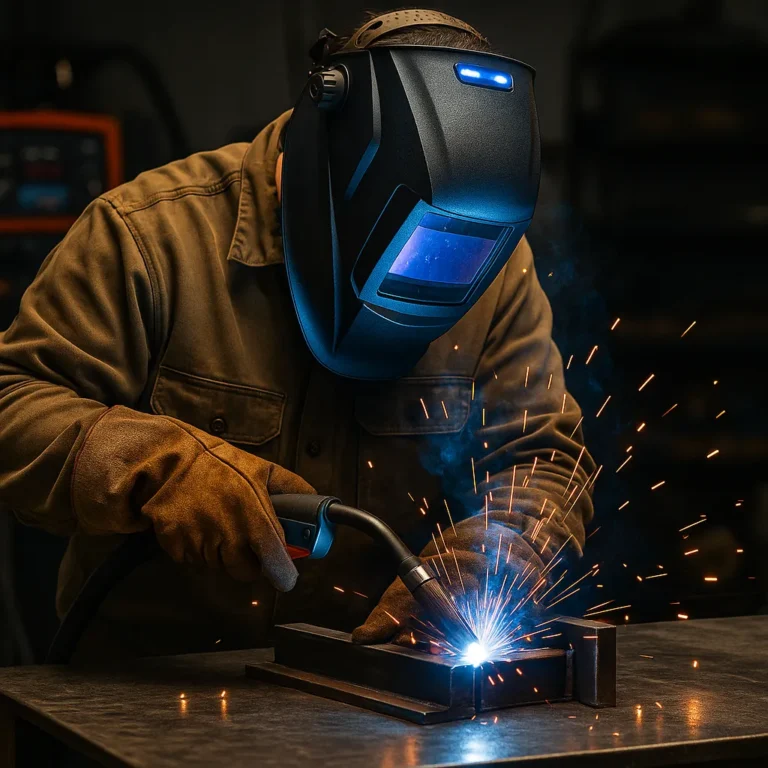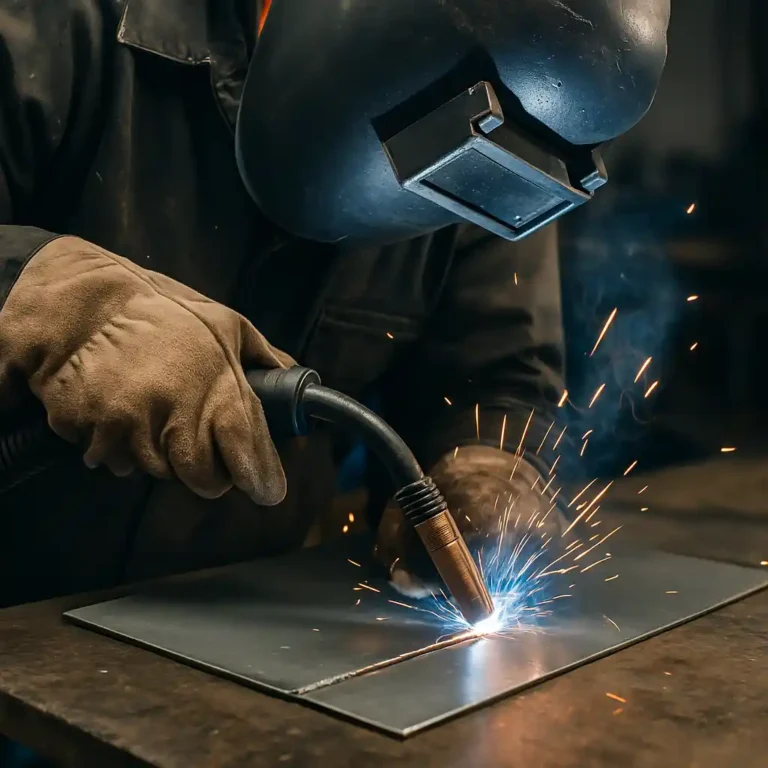Is JB Weld Gasoline Proof? What You Need to Know Before You Patch

Disclosure: This post contains affiliate links. As an Amazon Associate, I earn from qualifying purchases—at no extra cost to you.
Welding isn’t always an option—especially when you’re dealing with a tiny crack in a gas tank or a leaky spot on your mower. That’s where JB Weld steps in. But before you start patching things up, let’s answer the big question: Can JB Weld actually hold up to gasoline?
The short answer? Yes, but only if you use the right one.
Not All JB Weld Is the Same
JB Weld makes a wide range of products, and not all of them are suited for fuel-related repairs. Some are designed for basic household fixes and may break down quickly when exposed to gasoline.
For fuel contact, you’ll want to go with JB Weld Professional Steel Reinforced Epoxy. It’s formulated to resist gasoline, oil, diesel, water, and hydraulic fluid—making it a solid pick for automotive or small engine repairs.
According to the manufacturer and plenty of user reviews, this epoxy holds up well when applied to a clean, roughened surface and given a full 24-hour cure time.
What It’s Good For (and What It’s Not)
Feedback from welders and DIYers suggests this epoxy works well for:
- Small fuel tank leaks
- Motorcycle gas tank patches
- Marine repairs
- Fixes on non-pressurized fuel system parts
However, it’s not recommended for:
- Pressurized fuel lines
- Parts that get very hot
- Structural areas that flex or vibrate heavily
If you’re sealing something that stays fully submerged in gasoline, it’s better to use a dedicated tank liner or consider a welded solution.
Understanding “Gasoline-Resistant”
JB Weld Professional isn’t gasoline-proof in the absolute sense—it’s gasoline-resistant. That means it can handle routine exposure to fuel, but prolonged submersion, especially with ethanol-blended fuels, may break it down over time.
It’s reliable for repairs around fuel systems, but not a permanent fix for components in constant fuel contact.
Recommended JB Weld for Fuel Repairs
The JB Weld Professional Steel Reinforced Epoxy is a proven option for fuel-related fixes. It’s designed for jobs that require fuel and oil resistance, and it’s received consistently strong feedback from users working on automotive and marine repairs:
View on Amazon – JB Weld Professional Epoxy (Fuel & Oil Resistant, 2-Pack)
Conclusion
So, is JB Weld gasoline proof? It depends on the product. If you use the fuel-resistant version like the Professional Steel Reinforced Epoxy, it can absolutely hold up for light-duty fuel repairs.
With proper prep, patience, and an understanding of where it works best, this epoxy can save you time and money in the garage. Just don’t expect it to replace a weld in every situation.






